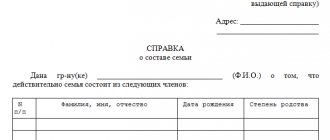When a person dies, all his property passes to his heirs; if there are no heirs, then to the state. What to do if the deceased was a tenant in a council apartment? The whole difference is that non-privatized property, unlike privatized property, cannot be sold, transferred or donated. It does not belong to you, but is the property of local or regional authorities. Accordingly, the question arises - who will live in the apartment, and also who will get it after the death of the tenant?
Powers and obligations of a tenant under a social tenancy agreement
The tenant of municipal housing has a wide range of rights in relation to this real estate:
- grant the right to other people to live in an apartment free of charge or for a fee (unless this is prohibited by the norms of the current housing legislation);
- exchange residential premises for similar real estate from a fund owned by the municipality (according to the provisions of Article 72 of the Housing Code);
- use the capital repair service provided free of charge;
- use various services provided for money by public utilities.
The responsibilities of a municipal housing tenant are as follows:
- Use the apartment strictly for its intended purpose (for the residence of the tenant and his family members).
- Carry out routine repairs and constantly monitor the proper operation of communications in the residential premises.
- Pay for services under the rental agreement, as well as utility bills, on time.
Features of registration and residence of family members
If the tenant rents municipal housing with his family, they must be indicated in the social tenancy agreement. The following persons fall into this category:
- wife husband);
- parents;
- children;
- tenant's dependents;
- other citizens living with the employer.
All persons specified in the contract have equal rights and obligations with the employer. New citizen-relatives can be registered only with the consent of all people included in the social tenancy agreement.
Persons who are not relatives can be registered in an apartment only with the consent of the municipality. If there are more people living in a residential building than required by the standards, the landlord has the right to refuse registration of other people. If we are talking about minor children of registered citizens, then they do not need to obtain an individual permit.
Who gets municipal housing after the death of the main tenant?
Since the apartment transferred for the use of citizens under a social tenancy agreement is owned by the local administration, only it can dispose of it. Therefore, housing cannot be the object of inheritance.
If the tenant lived alone, and no one else is registered in the residential premises, after his death the apartment passes to the municipality. He can leave the apartment without tenants or transfer it to other citizens under a social tenancy agreement.
Good to know:
- Privatization of an apartment: where to start and where to go first
- Pros and cons of a non-privatized apartment
- Use of residential premises under a social tenancy agreement
If other people lived in the apartment with the tenant, they are given the right to continue renting the premises under the same conditions, but changing the information about the tenant.
When does the transfer of housing to the municipal fund take place?
Re-registration of a social tenancy agreement by one of the family members after the death of the tenant responsible for the apartment allows for the privatization of the apartment. This can be done if the deceased has already begun this process, but did not complete it due to death. Then his relatives receive a similar right or after re-registration of the DSN. But if a sufficient amount of time has passed since the death of the tenant, and none of the family members have applied and re-concluded the contract, or no other registered persons lived in the apartment, then the non-privatized housing again goes into the municipal fund.
The right to receive such an apartment is only available to a certain circle of persons by law who are citizens of the Russian Federation. These include:
- low-income citizens whose income is below the subsistence level in the region;
- persons who have nowhere to live and do not have their own housing;
- citizens who have a place to live, but the size of the allocated area is less than established;
- own housing is in disrepair or is temporarily subject to reconstruction;
- live together with patients who pose a threat to their health (for example, a chronic infectious disease).
All of the above persons are officially recognized citizens who need housing or improved conditions. In this case, the state can provide an apartment under a social rental agreement, where you will only need to pay for utilities and maintain living conditions in an appropriate manner. However, if there is a waiting list for such housing, you will not be able to move into a municipal apartment right away.
Features of a social tenancy agreement
Based on the agreement concluded by the parties, the tenant has the right to use the premises specified in the agreement indefinitely, as long as he does not violate the rules for using the property.
The contents of this agreement are established by the provisions of Resolution No. 315, issued by the Government of Russia on May 21, 2005. According to this legal act, the social tenancy agreement must contain the following information:
- specific description of the municipal property (exact address, characteristics);
- list of powers and obligations of the parties;
- procedure for making various changes;
- grounds for termination of the contract by agreement of the parties and unilaterally.
The annex to the contract indicates all citizens registered in the apartment and living with the tenant. They are responsible for the property in the apartment jointly and severally with the main tenant.
If during the use of social housing there is a need to make any changes to the rental agreement, this is carried out in accordance with the norms of the Russian Housing Code and other acts.
Citizens living in a municipal apartment can enter into a single rental agreement with the administration, according to which all specified entities are included in the family.
If none of the residents objects, the apartment can be re-registered to any of the citizens registered and living in it. Thus, the death of the main employer entails the emergence of such a right.
Rights of other residents
What are the rights of a council housing tenant? Article 76 of the Housing Code indicates the possibilities of the tenant in relation to non-privatized living space. This includes:
- the right to move in other third parties, except those who officially live there under a social tenancy agreement;
- exercise the right to sublease and re-let the allocated part of the living space or the entire apartment (only after the consent of the municipality);
- require the owner to carry out repair work and timely provision of housing services;
- allow third parties to reside on a temporary basis (as agreed by the parties);
- exchange this type of real estate for another or demand its replacement based on special circumstances specified in Article 72 of the Housing Code of the Russian Federation.
Any changes must be made to the social tenancy agreement for the apartment and not only with the consent of the municipality, but also of other people living in it who have acquired legal capacity. If you want to move someone in or register someone in this apartment, you will need to obtain permission from the owner. An exception is registration for minor children in a non-privatized apartment. The state can refuse to register new residents only due to a violation of the amount of space per person.
Now let's look at the rights of other tenants in the event of the death of the tenant. What a family member living with the main tenant can do after his death:
- Renew the social tenancy agreement for yourself.
- Go through the privatization procedure.
To renew the contract, you must have the permission of the other residents living in the apartment, as well as the landlord, that is, a departmental or municipal body. Privatization implies the appropriation of state property, that is, the property will be transferred to your personal property, which you can dispose of without the consent of government authorities. However, privatization cannot be carried out without re-registering the social tenancy agreement.
Grounds for termination of a social tenancy agreement
There are several grounds for terminating housing legal relations under a social tenancy agreement:
- consent of both parties;
- identification of violations of the terms of the contract on the part of the residents registered in it;
- the inability to continue living in the apartment due to the demolition of the house or its reconstruction;
- termination of the agreement at the initiative of the administration in connection with a ruling of a court or other authorized body that has entered into force;
- seizure of a land plot with the provision in return of the right to reside in another municipal facility;
- rent arrears for more than 6 months;
- proven guilt of residents in causing significant damage to municipal housing;
- use of the apartment for other purposes;
- systematically committing actions that violate the rights of neighbors.
Unilateral termination of the contract is possible only through court.
Rights of citizens living in a municipal apartment
Housing that is provided to citizens temporarily belongs to the state. Such property is called municipal property. Accommodation in the apartment is carried out on the basis of a social tenancy agreement. Citizens do not have the right to dispose of a residential property (sell, donate), but can own and use it.
In addition, the following rights are provided for those living in a non-privatized apartment:
- provide living space to other persons;
- exchange real estate with tenants;
- receive free capital repair services;
- use public services for a set fee.
At the same time, citizens also have responsibilities, for example, to take care of property.
One of the most common questions regarding rights to municipal property is whether a non-privatized apartment can be bequeathed. You need to focus on. The inheritance includes the property that belonged to the testator at the time of his death. If the apartment is not privatized, it remains municipal property.
Re-registration of municipal property to another tenant
Each Russian region establishes its own procedure for submitting applications for re-registration of municipal housing. The main thing for tenants after the death of the tenant is to determine which of them will be a party to the contract. Before submitting the list of required documents, it is important to deregister the deceased relative.
When the municipality makes a decision to re-register the contract to another person, applicants must contact the housing management company, which will change the personal account information. According to Article 69 of the Housing Code of the Russian Federation, a contract can only be re-issued in the name of an adult capable person.
The timing of re-registration depends on when employers submit the appropriate application and receive the consent of the municipality. If the administration refuses to re-sign the contract without good reason, the tenants need to go to court to protect their interests.
How to reissue the DSN
A social tenancy agreement (STN) is a document concluded between the landlord - a government body, and the tenant - a certain group of people who need municipal housing. The form of drawing up and procedure for a social rent agreement are regulated by Government Decree No. 315. An agreement to live in a municipal apartment can be concluded only if you fall into a special category of citizens, as well as with the approval of the municipality.
As for the re-registration of VAT after the death of the employer to another family member, there are two options:
- Obtain the consent of the remaining residents, where the tenant will be one responsible person, and the rest of the residents are only registered in the municipal apartment.
- Draw up a general agreement for all residents if they are family members.
If you inherited the apartment from a deceased family member, then you can re-register the contract in your name at the local government authority (who is the owner) or through the intermediary organization “My Documents”. Often this issue is dealt with by the housing inspectorate, which is located in the municipal administration. Before collecting the necessary documents and contacting the responsible authority for this action, it is necessary to resolve a number of the following issues:
- Discharge the deceased from a non-privatized apartment.
- Obtain the consent of other residents to renew the contract.
After submitting all the documents, wait for a positive decision, and then come and re-sign the document that will be issued in your name. If you want to carry out privatization, then this issue will already be resolved through another authority. The final stage of re-issuing a social tenancy agreement is changing the personal account. To do this, you need to contact the Management Company and re-register the personal account in your name, and also ask to recalculate utility bills from the date of the tenant’s death.
Necessary documents for privatization of an apartment
Required documents
If you are missing at least one document, then you will not be able to renew the social tenancy agreement for a municipal apartment with the owner. Therefore, in addition to obtaining the consent of other family members, immediately begin collecting the required documents. Their list is as follows:
- death certificate of the current employer;
- social rental agreement;
- technical and cadastral documentation for the apartment;
- your passport and the passports of other family members (if there are children, then a birth certificate);
- certificate of absence of debts for utility services;
- extract from home book.
Documents are attached to the application with a request to re-register the contract. The application is written in the prescribed manner. You can ask the responsible employee for a sample. If not all family members, for various reasons, were able to give their consent to renew the social tenancy agreement, then a notarial agreement for this action must be attached to the above documents.
List of required documents
Re-registration of the contract will be possible when the tenant chosen by the residents appears at the municipality together with other citizens registered in the residential premises, submits an application to re-sign the contract indicating all persons present and attaches the following documents to it:
- residents' passports;
- a document confirming the death of the main employer (court decision, death certificate);
- original of the current social tenancy agreement;
- extract from the personal account.
After submitting the documents, the applicant must wait for a written response from the administration and re-sign the agreement with it.
Living in a municipal apartment is beneficial from a financial point of view. But if the main tenant dies, there may be problems with the continued residence of the remaining tenants in the premises. Often it is necessary to resolve the problem through the courts.
Your rating of the article




